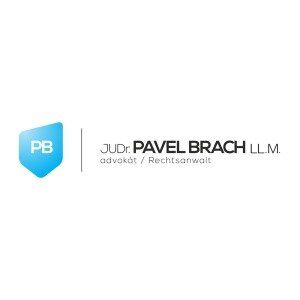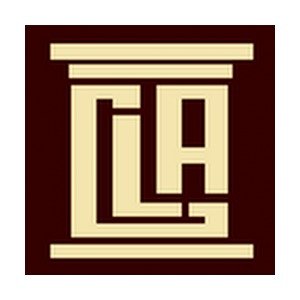Best New Business Formation Lawyers in Czechia
Share your needs with us, get contacted by law firms.
Free. Takes 2 min.
Or refine your search by selecting a city:
List of the best lawyers in Czechia
About New Business Formation Law in Czechia
New Business Formation in Czechia involves structuring and establishing a business entity in compliance with the country's legal requirements. The most common business structures include a limited liability company (s.r.o), a joint-stock company (a.s), a partnership, and a sole proprietorship. Each type of business entity has its own legal stipulations regarding capital requirements, shareholder responsibility, and operational governance. Understanding the intricacies of these laws is crucial for anyone looking to start a business in Czechia.
Why You May Need a Lawyer
Legal guidance can be invaluable when forming a new business in Czechia for several reasons:
- Choosing the right type of business entity for tax efficiency and liability purposes.
- Navigating complex registration processes with the Czech courts and administrative bodies.
- Complying with local labor laws and regulations, particularly when employing staff.
- Drafting and reviewing contracts to protect your business interests.
- Ensuring compliance with sector-specific regulations and obtaining necessary licenses.
Seeking legal advice can help prevent costly mistakes and ensure that your business operates within the boundaries of Czech law from the start.
Local Laws Overview
Key aspects of Czech laws relevant to new business formation include:
- Commercial Register: All businesses must be registered with the Commercial Register, which is managed by the regional courts.
- Trade Licensing: Depending on the nature of the business activities, a trade license from the Trade Licensing Office may be required.
- Minimum Capital Requirements: Specific minimum capital is required for different kinds of business entities, such as an s.r.o needing at least CZK 1 as initial capital.
- Articles of Association: These documents outline the internal regulations of the company and are essential for registration.
- Taxes: Businesses must register for VAT if their turnover exceeds the threshold set by the government, and they need to comply with local tax laws.
Frequently Asked Questions
What types of business entities can I establish in Czechia?
You can establish various types of entities, including a limited liability company (s.r.o.), a joint-stock company (a.s.), a general partnership (v.o.s.), a limited partnership (k.s.), or operate as a sole trader (živnostník).
How long does it take to register a new business?
The process can vary but typically takes between two weeks to a month, depending on the complexity of the company's structure and whether all documents are correctly filed.
Do I need a Czech bank account to start a business?
Yes, it's advisable to have a Czech bank account for your business to facilitate smoother transactions and compliance with local financial regulations.
What is the Commercial Register? Why is it important?
The Commercial Register is a public registry where all businesses must be recorded. It ensures legal recognition and allows third parties to verify the existence and status of your company.
What is required to draft Articles of Association?
Articles of Association must outline the purpose of the company, its internal structure, the identity of the shareholders, and other regulations. Legal assistance is recommended in drafting these documents to comply with Czech laws.
Are there specific employment laws I must follow?
Yes, Czech labor laws govern employment contracts, workplace safety, employee rights, and fair treatment, ensuring compliance is vital to avoid legal issues.
How do I protect my intellectual property in Czechia?
You can protect intellectual property through trademarks, patents, and copyrights. Registering them at the national or European level helps safeguard your business's creative assets.
Do I need to pay VAT immediately after registration?
You must register for VAT if your business's annual turnover is expected to exceed CZK 2 million, but you can also register voluntarily at any point.
What licenses might I need for my business?
Licensing depends on the business sector. For example, hospitality, health services, and financial services have specific licensing requirements that must be met before operations can begin.
Can a foreigner own a business in Czechia?
Yes, foreigners can own and operate businesses in Czechia. They must adhere to standard procedures and may require additional documentation based on residency or type of business.
Additional Resources
For more detailed information, consider reaching out to the following resources:
- Ministry of Industry and Trade: Offers guidelines and support for businesses in Czechia.
- Czech POINT: A government initiative that simplifies the registration process and provides public administrative services.
- BusinessInfo.cz: An official portal for business and export with information on starting and running a business in Czechia.
- Trade Licensing Office: For specific licenses and permits relevant to your business activities.
Next Steps
If you require legal assistance with forming a business in Czechia, consider the following steps:
- Consult with a lawyer specializing in corporate law to understand your options.
- Gather necessary documentation such as proof of identity, capital, and business premises.
- Draft essential documents like the Articles of Association and other agreements with legal guidance.
- Register with the Commercial Register and obtain necessary licenses from relevant authorities.
- Establish a Czech bank account to facilitate business transactions.
Engaging with a professional can help streamline the process and ensure your business complies with all legal requirements from the beginning.
Lawzana helps you find the best lawyers and law firms in Czechia through a curated and pre-screened list of qualified legal professionals. Our platform offers rankings and detailed profiles of attorneys and law firms, allowing you to compare based on practice areas, including New Business Formation, experience, and client feedback.
Each profile includes a description of the firm's areas of practice, client reviews, team members and partners, year of establishment, spoken languages, office locations, contact information, social media presence, and any published articles or resources. Most firms on our platform speak English and are experienced in both local and international legal matters.
Get a quote from top-rated law firms in Czechia — quickly, securely, and without unnecessary hassle.
Disclaimer:
The information provided on this page is for general informational purposes only and does not constitute legal advice. While we strive to ensure the accuracy and relevance of the content, legal information may change over time, and interpretations of the law can vary. You should always consult with a qualified legal professional for advice specific to your situation.
We disclaim all liability for actions taken or not taken based on the content of this page. If you believe any information is incorrect or outdated, please contact us, and we will review and update it where appropriate.
Browse new business formation law firms by city in Czechia
Refine your search by selecting a city.











